What is polycystic ovary syndrome (PCOS)?
Polycystic ovary syndrome (PCOS) is a common hormonal and reproductive condition that involves multiple organs as well as a part of the brain such as the pineal gland or hypothalamus, parts of your metabolism, and hormones.
Polycystic ovary syndrome affects ~6-10% of women and typical PCOS symptoms such as insulin resistance, irregular periods, infertility, high androgen levels, as well as cysts on the ovaries (1).
It’s estimated that up to 70% of women with PCOS remain undiagnosed (1)!
PCOS is a complex hormonal syndrome that can lead to a wide range of symptoms, including irregular periods, excess hair growth, acne, weight gain, and difficulty losing weight.
Other polycystic ovary syndrome symptoms
Other PCOS symptoms may include hair loss, fatigue, acne, excess hair growth, and mood changes. It can also make it harder for people to get pregnant and can negatively affect their mental health if left untreated.
The symptoms of PCOS can be both disrupting and uncomfortable
Many women with PCOS feel they don’t belong to their bodies. Women with PCOS can also feel incredibly isolated as many of their friends or family may be unaware of the condition and how it affects women’s bodies.
All Women with PCOS Need to Get Professional Medical Advice
PCOS can affect your entire body, not just the ovaries!
The condition is often associated with fertility issues but it also leads to other chronic health problems such as high blood pressure, insulin resistance, heart disease, and sleep disorders.
That is why early detection and diagnosis of PCOS with a physical exam and blood tests is so important, even if you are not planning on getting pregnant!
Tell me the cause of Polycystic Ovarian Syndrome (PCOS)?
The exact cause of polycystic ovary syndrome is not known.
There appears to be a genetic link but to make matters more complicated, there is no 1 gene that is linked to PCOS but rather multiple gene combinations meaning that polycystic ovarian syndrome is considered a “poly-genetic” syndrome.
Women with PCOS may have a female family member with polycystic ovary syndrome or have a male family member who has early hair loss or balding. Women with PCOS may also have family members with diabetes.
PCOS symptoms are driven by insulin resistance, high levels of androgen hormones, and chronic inflammation.
PCOS is not caused by weight gain or a diet that is higher in sugar or highly processed foods!!! You did not cause your PCOS.
How To Beat PCOS?
You cannot cure or beat polycystic ovary syndrome; however, you can learn how to manage polycystic ovary syndrome! Even weight loss or menopause cannot cure PCOS.
While a healthy diet can be effective in reducing PCOS symptoms, a lifestyle change is also important to manage polycystic ovary syndrome.
Women with PCOS can manage their polycystic ovary syndrome through lowering stress, making sustainable nutrition changes, balancing blood sugar, and adding safe supplements for PCOS.
You do not have to pursue weight loss to improve insulin resistance and hormonal imbalance.
Can an anti inflammatory diet help PCOS?
Nutrition changes can help polycystic ovary syndrome (PCOS)!
An anti inflammatory diet includes any diet that is higher in nutrient-rich and minimally processed foods can have a positive effect on gut health, blood sugar control, improve insulin sensitivity, and balancing hormones.
But it is important to remember that any nutrition changes you make need to fit into your values, goals, culture, and preferences!
There is no 1 diet that has been proven through randomized controlled trials to be the best diet for polycystic ovary syndrome so you have a lot of options!
Choosing the right supplements for PCOS
Supplements for PCOS are not a cure but can be highly beneficial for women with PCOS alongside nutrition, lifestyle, and medical treatments.
Some supplements for PCOS are highly potent and powerful herbal medicine; it is important that you get professional medical advice before you take any herbal medicine or even some vitamin supplements as well.
I recommend working with a Dietitian who focuses on polycystic ovary syndrome in addition to checking with your doctor and pharmacist (especially if you are taking any other medications).
In addition to getting professional medical advice, not all supplements for PCOS are created equally in terms of quality and safety.
Supplement safety includes where the vitamin or herbal medicine is sourced, the factory it is produced, and whether there are any contaminants in the supplement as well. Just because it is natural, it does not mean it is automatically safer!
Supplements as part of PCOS treatment
Controlling insulin resistance and inflammation can be essential to restoring hormonal balance and improving PCOS symptoms.
What are the Best Supplements for PCOS?
The best supplements for PCOS depend on which your blood work, medical history, medications, and PCOS symptoms you struggle with.
The best supplements for PCOS depend on your PCOS symptoms whether you have insulin resistance, irregular menstrual cycle, high testosterone levels, and/or inflammation.
Magnesium Dietary Supplements
Magnesium is regulated as an enzyme by over 350 enzymes in the body. Magnesium is the 4th most abundant mineral in our body and it is involved in sooooo many parts of our metabolism – including glucose metabolism, hormone balance, gut health and even mental health!
Nearly 80% of Americans do not consume enough calcium and magnesium, this is likely very similar for Canadian women!
Why Do I Recommend Magnesium Supplements for PCOS Symptoms?
A higher magnesium intake is associated with a 31% lower risk of young adults developing metabolic syndrome since magnesium regulates blood glucose levels (2) by influencing the release and activity of insulin (I.E. improving insulin resistance).
There is an inverse relationship between magnesium intake and risk for type II diabetes, regardless of weight or BMI (3).
The risk of polycystic ovary syndrome in women with a magnesium deficiency was 19 times greater than in women with normal PCOS levels (4).
How Can Magnesium Help Women with PCOS?
Magnesium can help in many ways! Magnesium dietary supplements can help with:
– improve insulin resistance
– lower testosterone levels
– increase ovarian function by boosting progesterone levels
– aids in estrogen use & breakdown
– helps your nervous system deal with stress
– improves sleep quality
– helps reduce inflammation
– decreases bloating
PCOS patients may also enjoy the benefits of magnesium vitamin supplements for PMS symptoms as well!
One study actually showed that the magnesium levels in women with PMS were lower than in those without PMS (5).
The crazy part is that we don’t fully know exactly how magnesium reduces PMS symptoms but one hypothesis is that magnesium helps balance hormones, primarily progesterone (6).
How to Take Magnesium for PCOS Symptoms
I typically recommend magnesium bisglycinate over other formats such as magnesium oxide since it is better absorbed by the body and it is less likely to give you gut health issues such as diarrhea.
I usually start women with PCOS off at a dose of 200-300 mg tablet taken after a meal or snack and about 30-60 mins before you go to sleep.
A few tips for supplement safety & effectiveness for women with PCOS
– Avoid taking zinc supplementation as magnesium and zinc both compete for absorption
– Magnesium supplements can affect the absorption of antibiotics so you may want to get professional medical advice before you start antibiotics while on magnesium.
– Avoid taking any thyroid medications and clarify with your pharmacist when it is best for you to take magnesium
– Magnesium can cause gut health issues such as GI irritation, nausea, emesis, and diarrhea
– Follow the directions of your health care provider or the instructions on the bottle. Taking more isn’t always better!
What are the Other Best Supplements for PCOS?
A few of the other supplements for PCOS include probiotic supplements, vitamin D supplementation, zinc supplementation, fish oil supplements, myo & d chiro inositol, and others.
Stay tuned for more blog posts as I will keep this series going!
Vitamin D Supplements for PCOS
I always recommend starting with diet and lifestyle changes before turning to dietary supplements, but if you’re a woman with PCOS and you are struggling with insulin resistance, reduce inflammation, menstrual regularity, hair growth, hair loss, higher sex hormones including testosterone, then vitamin D supplementation may be a good place to start!
Read more about vitamin D and vitamin D deficiency for women with PCOS in another blog post here.
Polycystic Ovarian Syndrome & Magnesium Summary
If you’re like most women with PCOS, then you have probably been told that your symptoms are just something you have to live with. But what if I told you that there are steps you can take to lessen the impact of your PCOS symptoms?
In this blog post, we looked at the role of magnesium in lowering insulin resistance and how supplementation may help improve some of the common PCOS symptoms.
If you’re struggling with insulin resistance, higher blood sugar levels, metabolic syndrome, reduce inflammation, lower unwanted hair growth, hormonal imbalances, and poor menstrual regularity then magnesium bisglycinate may be a great starting point for you!
You could also check out another blog post on how to improve acne, a common PCOS symptom) through diet – read it here.
And don’t forget – if you want more tailored advice for your unique situation, reach out for a free clarity call!
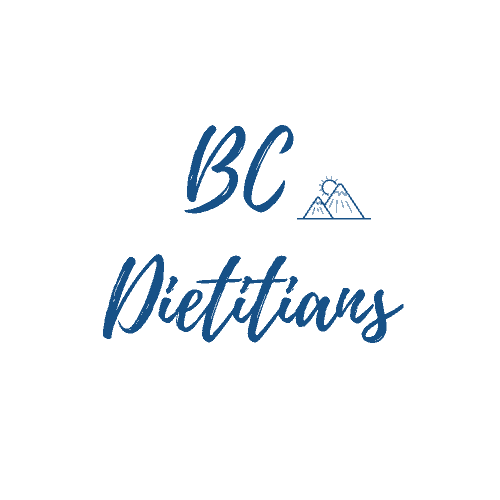

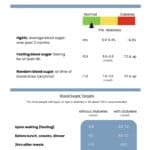


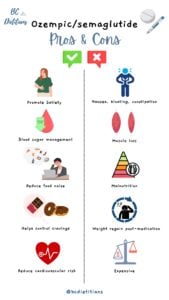
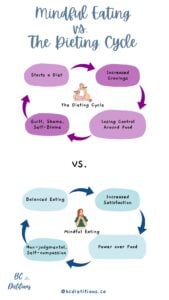
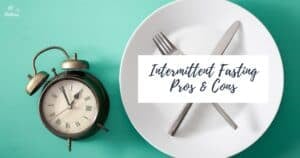
Add a comment